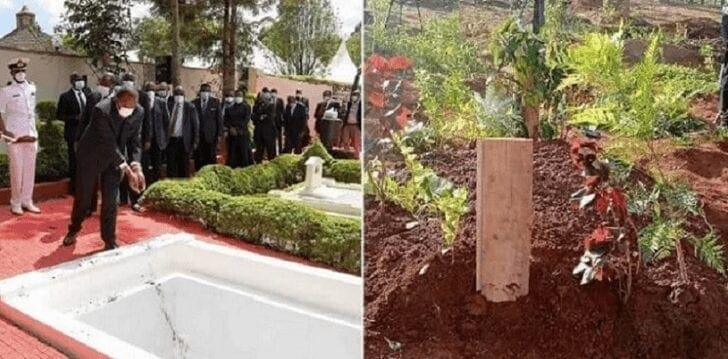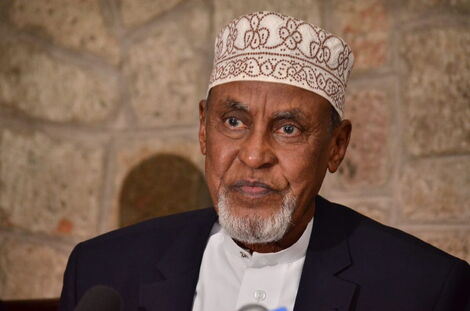Striking Difference of Nyachae and Yusuf Haji Burials Ignites Debate

Nyachae, a Christian and a Kisii elder, passed on two weeks ago and was buried in an elaborate ceremony at his Nyosia village home in Kisii County.
Prior to his interment, the family had been holding daily meetings at his rural and Nairobi home. A funeral service was also held on Thursday, February 11 at the Nairobi Central Seventh Day Adventist (SDA) church.
On the morning of Nyachae’s burial, the country received the sad news of yet another veteran public servant, Senator Haji who passed on while undergoing treatment at the Aga Khan hospital.

Many Kenyans were surprised to learn that unlike most of his compatriots in politics, Haji was not buried in his Garissa home but at the Langata Muslim Cemetry in a quick and modest ceremony that was concluded less than twelve hours after his death.
Speaking to Kenyans.co.ke, an Islamic scholar took us through the burial process in Islam to help us get more knowledge of the process.
When a Muslim dies, he or she gets buried at the place where he or she passed away at. In Islamic rites, your burial is where death finds you. This explains why Senator Haji was not buried in Garissa which would have been an ideal place for a man of his status compared to Langata Muslim Cemetery where he was laid to rest.
The body of a deceased Muslim is prepared at home or at the mosque.The departed is wrapped in a simple cloth called a sanda and then carried in a Janaza to the mosque for prayers.
After the normal prayers are done, family members ask the congregation if the departed owed them anything or if they owed they departed anything. If it happens that someone was owed by the deceased, the family members announce that they take responsibility.
The deceased is then carried to his resting place where he or she is laid on his right facing Mecca where all Muslims face as they pray.
This simple and cost-effective process has ignited a lot of social media responses from Kenyans who are used to the hectic process that comes with one’s death.
“We should all be considering this type of burial. Quick and relatively inexpensive,” actor and music teacher Ian Mbugua commended.
Kenyans have praised Islamic rites for their cost-effectiveness and simplicity. Many were pleased with the absence of political speeches at the burial of the former Senator.
However, a section of Kenyans argued that the traditional African ceremonies and the Christian rites are helpful in helping the bereaved family mourn and bade farewell to the deceased.
“In our culture, we have things to say to the dead and the deceased’s relatives must be allowed time to mourn and come to terms with the death. After two weeks of mourning, we proceed with normal life,” a journalist said while commenting on the matter.
By
Source-https://www.kenyans.co.ke/
Striking Difference of Nyachae and Yusuf Haji Burials Ignites Debate









